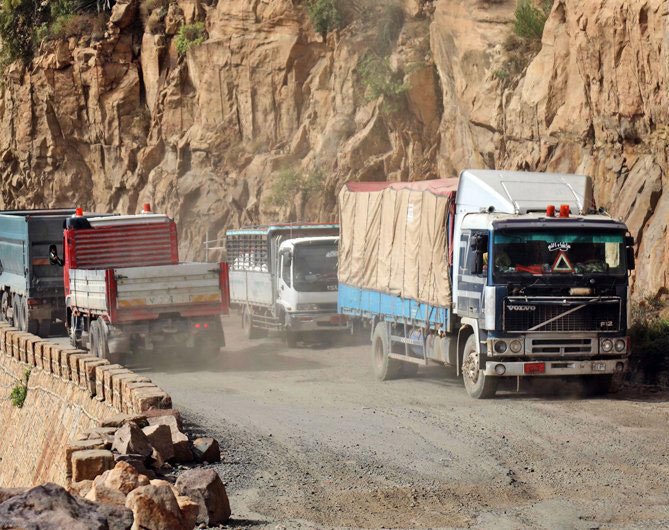White Papers
The Road Transport Sector in Yemen: Critical Issues and Priority Policies

Yemen is predominantly a rural country, with over 70% of the population living in 140,000 settlements in impoverished rural areas, and road transportation is essential for its development and overall economic growth. With only about 3,744km of paved rural roads, representing approximately 6.4% of all roads in the country, Yemen’s neglected road network poses significant development challenges. The current conflict, in its various forms, has complicated the movement of people and goods between governorates as well as into and out of Yemen. Road transportation costs have risen as much as 145% due to high fuel prices and the need to take alternative long-distance routes. Road infrastructure has also incurred heavy losses because of the conflict, estimated at $1.3 billion, with the total length of damaged roads reaching about 6,000km along with more than 100 bridges. Road projects have been halted due to a lack of financing, which has exacerbated the sector's problems.
Among the most prominent institutional challenges are a lack of effective policies and legislation, rundown equipment and machinery, and personnel and human resources challenges. A shortage of financial resources, which limits the sector’s operations, is the largest obstacle facing road transport authorities.
This white paper offers short-term, medium and long-term recommendations on alleviating the impacts of the war on the road transportation sector; infrastructure policies for rural and urban roads; policies for road maintenance and repairs that impact commercial traffic; and updating the institutional structure of road transportation.
In the short-term, efforts must be made to boost the sector's role in developing, implementing, and operating intelligent transportation systems for buses and freight trucks to guarantee the security and safety of passengers and streamline payments for cargo. It is also urgent that stalled road projects are resumed. Efforts must also include the restoration of operations at the weigh stations damaged by the war, application of traffic safety laws on roads between governorates to reduce accidents and enhancement of the institutional capacity of road transport institutions. Humanitarian and emergency aid should be directed toward rural roads to bolster these efforts.
In the medium to long term, authorities should establish inland ports at the main entrances to cities, which could help reduce traffic, heavy loads on roads and the price of goods. Efforts should also include a strategic program to expand rural roads in Yemen, assess the current state of the road network, develop international land border ports and facilitate transit procedures. Plans should also be made to develop the legislative, regulatory and institutional framework of the sector to meet current needs and prevent conflicting interests and tasks.